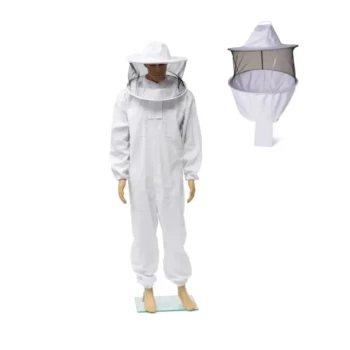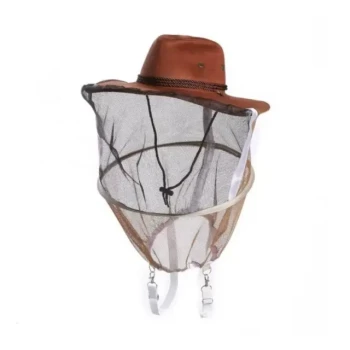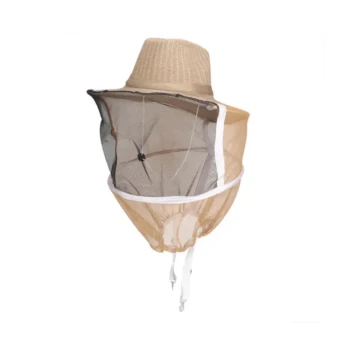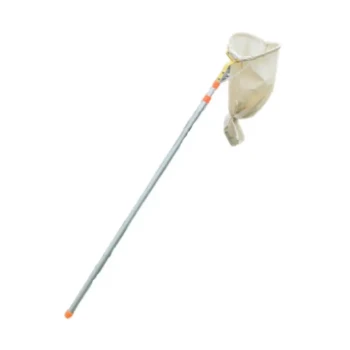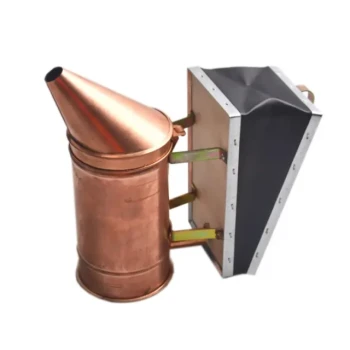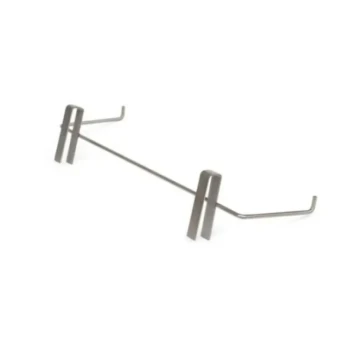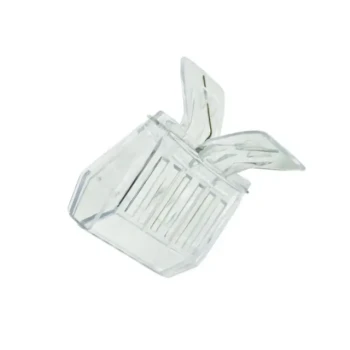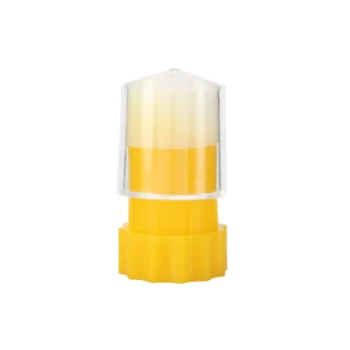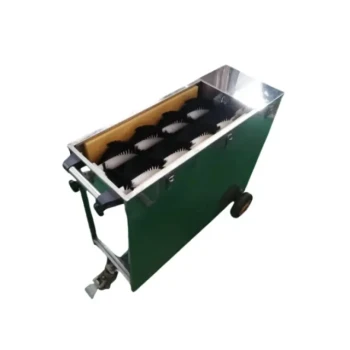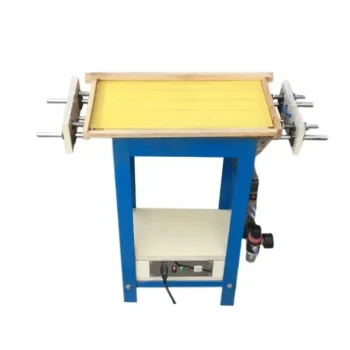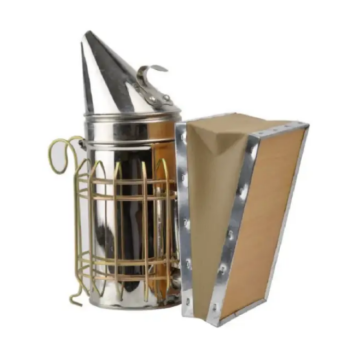Choosing the right beekeeping shoes is a critical decision for both safety and comfort. While no single "beekeeping shoe" exists, your choice of footwear directly impacts your protection from stings and your ability to work comfortably and safely for extended periods. The wrong shoes create vulnerabilities that bees can exploit and can lead to fatigue or injury in the bee yard.
The best beekeeping footwear is not a specific brand or style, but rather any shoe that provides complete coverage, sturdy support, and a non-slip sole to protect you from the unique hazards of an apiary.
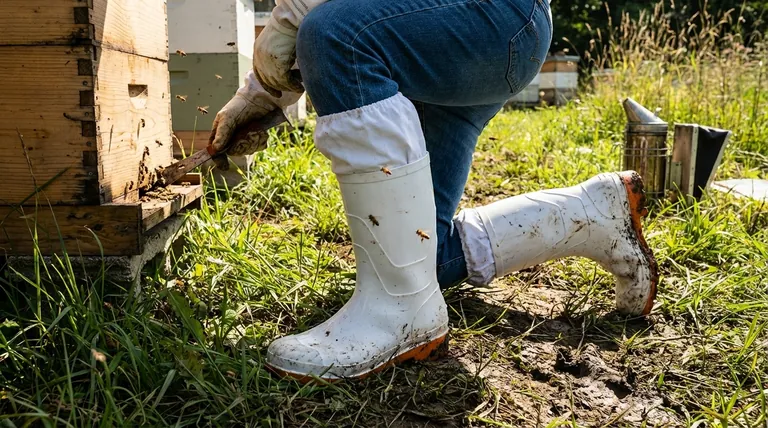
The Core Pillars of Effective Beekeeping Footwear
Your feet are the foundation for all the work you do in the bee yard, from lifting heavy boxes to navigating uneven terrain. The right footwear must address the core requirements of protection, stability, and endurance.
Absolute Protection is Non-Negotiable
The primary function of your gear is to prevent stings. Bees often crawl upwards from the ground and are adept at finding small openings.
This is why shoes with any kind of holes, like clogs (Crocs) or mesh sneakers, are highly discouraged. A single gap is an open invitation for a defensive bee.
Comfort and Support for Physical Labor
Beekeeping involves significant physical effort, including lifting heavy hive components weighing 50 pounds or more.
Footwear must provide adequate support to prevent foot, leg, and back strain. Shoes with supportive arches and padded insoles help distribute pressure evenly, making long hours in the apiary manageable.
Stability and Slip Resistance
Apiaries are often located on uneven, grassy, or muddy ground. A slip or fall is dangerous on its own, but it becomes a serious threat when you are working with an open hive of thousands of bees.
A sturdy, slip-resistant sole is essential for maintaining your footing and ensuring you can move with confidence and control around your colonies.
Practical Considerations for Long-Term Use
Beyond the core safety features, several practical characteristics determine whether a shoe is truly suitable for the demands of beekeeping.
The Balance of Breathability and Coverage
Working in a full bee suit on a hot day can be intense. While ventilation is important to keep your feet cool and dry, it cannot compromise protection.
The ideal shoe finds a balance, often using materials like leather or durable synthetics that breathe without offering an entry point for a bee's stinger.
Durability for a Demanding Environment
Your shoes will be exposed to mud, grass, water, and sticky propolis or wax. They need to be tough enough to withstand the rigors of the bee yard season after season.
Investing in durable construction saves you from having to frequently replace your footwear.
Ease of Cleaning
Beekeeping is often a messy activity. Shoes that are easy to clean, such as those that can be hosed off or wiped down, are far more practical.
Keeping your footwear clean prevents the buildup of debris that could compromise grip and also makes your gear more pleasant to use.
Understanding the Trade-offs: What to Avoid
Making the right choice is as much about avoiding poor features as it is about seeking good ones. Certain footwear is fundamentally unsuited for work in an apiary.
Any Shoe with Openings
This is the most critical rule. Sandals, clogs, and shoes with ventilation holes or mesh panels offer zero protection from determined bees and should never be worn in the bee yard.
Shoes with Poor Ankle Coverage
While not strictly necessary, boots that cover the ankle offer a superior level of protection. They create a secure overlap with your bee suit, eliminating the gap where bees often target. They also provide better defense against twisted ankles on uneven ground.
Making the Right Choice for Your Goal
Your ideal footwear depends on your specific climate, apiary conditions, and personal comfort needs.
- If your primary focus is maximum protection and durability: Sturdy leather work boots or hiking boots provide excellent all-around performance and ankle support.
- If your primary focus is ease of cleaning and wet conditions: Rubber boots (like Wellingtons) are the perfect choice as they are waterproof and can be hosed off easily.
- If your primary focus is comfort in hot, dry climates: A high-quality, fully-enclosed sneaker or trail shoe can work, but should always be paired with gaiters or have your bee suit securely strapped at the ankle.
Ultimately, the right footwear allows you to focus on the health of your bees, not the safety of your feet.
Summary Table:
| Feature | Importance for Beekeeping | Ideal Shoe Characteristic |
|---|---|---|
| Protection | Prevents bee stings from ground-level attacks. | Full coverage with no gaps, holes, or mesh. |
| Stability | Prevents slips and falls on uneven, often muddy, ground. | Sturdy construction with a slip-resistant sole. |
| Support | Reduces fatigue from lifting heavy hive boxes (50+ lbs). | Supportive arches and cushioned insoles. |
| Durability | Withstands exposure to mud, propolis, and harsh conditions. | Made from tough materials like leather or rubber. |
| Cleanability | Maintains hygiene and grip after messy work. | Easy to wipe down or hose off (e.g., rubber boots). |
Protect your apiary operations with the right gear. HONESTBEE supplies durable, high-performance beekeeping supplies and equipment to commercial apiaries and beekeeping equipment distributors. Let us help you equip your team with footwear that maximizes safety and efficiency. Contact our wholesale experts today to discuss your needs!
Visual Guide
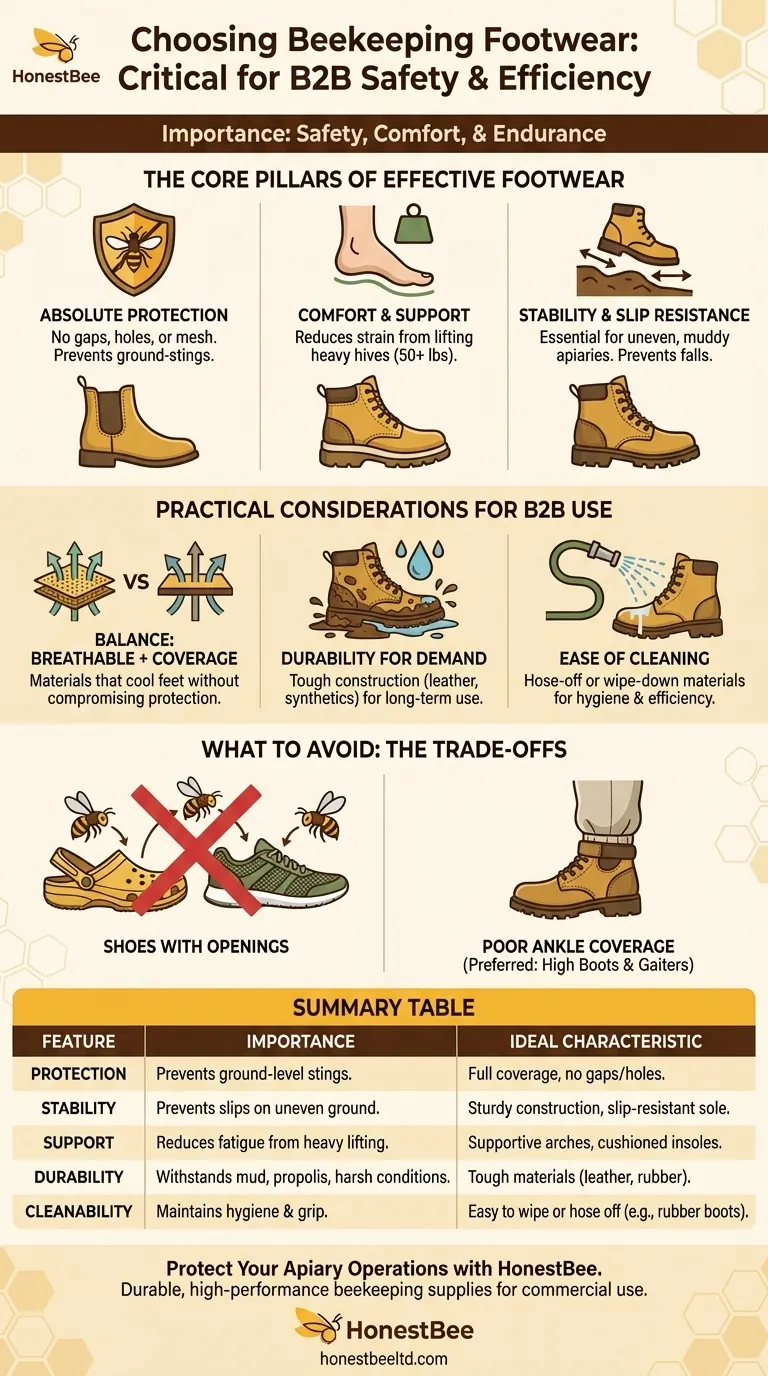
Related Products
- White PVC Beekeeping Shoes with Non-Slip Safety Sole
- Professional Cotton Beekeeper Suit with Round Veil Design for Commercial Apiaries
- Professional Beekeeping Suit for Kids and Girls Childrens Bee Keeper Suit
- Economy Polyester Beekeeping Jacket with Veil and Hat
- Beekeeping Jacket with Hood and Veil for Beekeepers
People Also Ask
- What should be considered when choosing beekeeping boots? Ensure Maximum Safety and Comfort
- What are the key characteristics of good beekeeping shoes? Ensure Maximum Protection and Comfort
- What are the recommended practices for protecting the lower body and feet during beekeeping? Essential Safety Tips
- How does proper coverage contribute to the effectiveness of beekeeping shoes? Secure Your Feet Against Stings
- What are some examples of boots used for beekeeping? Essential Protection for Your Apiary Work
- Why is ventilation important in beekeeping shoes? Balance Comfort and Sting Protection
- What features are important when choosing boots for beekeeping? Secure Your Safety with Professional Footwear
- What are some tips for choosing beekeeping shoes? Essential Guide to Safe & Comfortable Footwear

